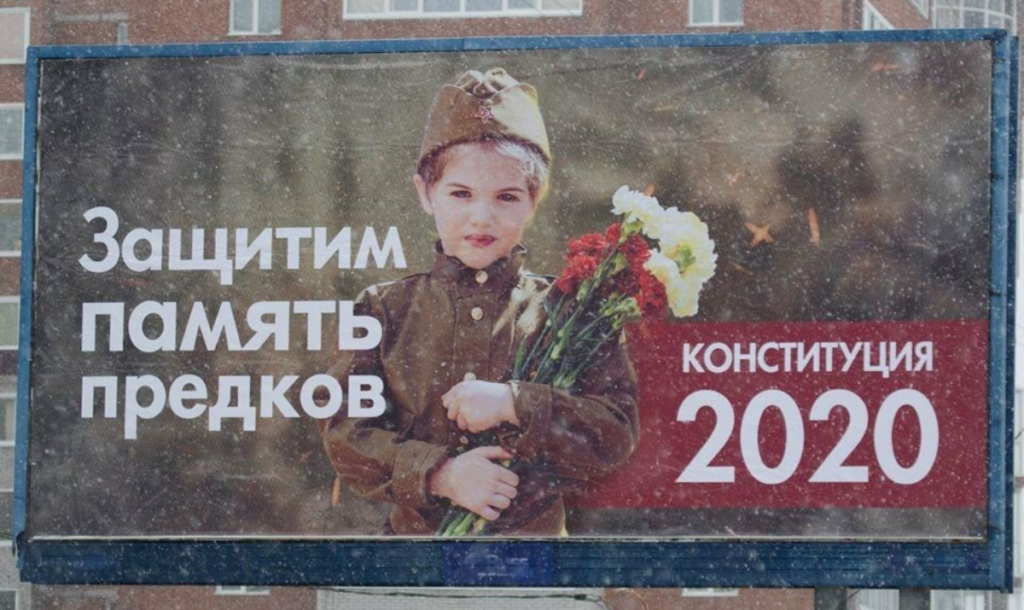
Kremlin puts constitutional referendum above all else
Lockdown in Moscow was lifted suddenly last week. The explanation is simple: the government wants people to have a breather before a constitutional referendum scheduled for July 1. Amid rising social disaffection, every weapon in the Kremlin’s armory has been deployed to secure a ‘yes’ result. All the constitutional changes at stake are a formality except one — ‘re-setting’ President Vladimir Putin’s term count allowing him to remain president until the mid-2030s.

- Moscow Mayor Sergei Sobyanin unexpectedly announced Monday the end of the city’s lockdown. The system of digital passes was scrapped, stores and beauty salons were allowed to open, and restaurants and cafes given the green light to begin operating from next week. Only the requirement to wear masks and gloves was retained, but this isn’t actually being enforced on the streets.
- The decision was odd. At the end of May, Sobyanin said (Rus) Muscovites would only be allowed to go outside when the daily increase in new cases dropped to the hundreds — but it has been between 1,800 and 2,000 since early June. And this only includes those showing COVID-19 symptoms, not those who have just tested positive for the coronavirus.
- The reason for Sobyanin’s abrupt change of heart is the constitutional referendum, sources told media outlets including The Bell (Rus). According to Open Media’s sources (Rus), Sobyanin changed his mind under pressure from Kremlin officials, while Meduza reported (Rus) Putin himself intervened. A source at a prominent company told The Bell that the Kremlin wants employees to return to workplaces to foster an atmosphere of normality. Officials realize lifting restrictions may lead to a spike in coronavirus cases but will attribute this to a ‘second wave’, sources told The Bell.
- The government’s nervousness is not unfounded. According to independent pollster Levada Center, 28 percent of Russians are ready (Rus) to take part in protests, the strongest appetite for direct action in 18 months. And trust in Putin has reached (Rus) a historic low of 25 percent (compared to 59 percent in November 2017).
- The Kremlin is aiming (Rus) for a 55 percent turnout for the referendum, and for 60 percent of the electorate to vote ‘yes’. This is not ambitious: in the last presidential election, the target was a 70 percent turnout and a 70 percent vote share for Putin. Voting will take place over 7 days — from June 25 through July 1. Home voting has been significantly expanded, and in some regions, there will be online voting. In Moscow, the authorities are giving away 2 billion rubles ($30 million) worth of gift certificates to voters.
- A huge PR campaign is underway to persuade people to vote ‘yes’ (the ballot will contain only two options ‘yes’ or ‘no’). The main trick so far has been to hide what is at stake. The main constitutional change – re-setting Putin’s term count – was initially omitted from the referendum’s website, and then buried among the other proposals.
- A lot of emphasis in the Kremlin’s campaign has been on how the changes will preserve ‘traditional values’ (the changes include a new constitutional definition of marriage as the “union of a man and woman”). City streets have also been flooded (Rus) with posters bearing the slogan ‘We will defend the memory of our forefathers’ — a reference to the enshrining the sacred nature of the Soviet victory over Nazism in the constitution. Opposition leader Alexey Navalny inadvertently gave the authorities a PR opportunity by calling (Rus) celebrities in an RT video backing the changes traitors — not realizing war veterans were also featured. Pro-Kremlin media outlets gleefully ran multiple reports about how Navalny had “insulted a veteran”.
Why the world should care There is little doubt the constitutional changes will be approved in the referendum — even if support is lacking, electoral fraud will be easy to organize because of the home voting and online voting provisions. But this is not the most important issue. If the Russian political and business elite realize real support for the changes is weak, it will undermine their faith in Putin’s system and put pressure on the regime. This may open the door to those seeking real change.



